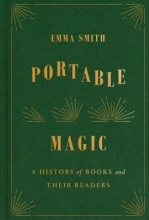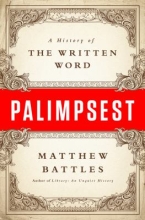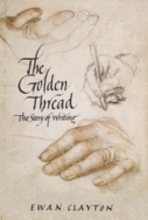 If I had a dollar for every time a library customer told me how much they love books, I would be a wealthy man. Those living now don't realize how privileged they are to be alive in an era with books and a population with the literacy level we have achieved. In her title Papyrus: The Invention of Books in the Ancient World, international author Irene Moreu Valleho demonstrates how the book itself was instrumental in the advancement of mankind. Prior to the development of more portable surfaces for writing, the only way to record events of note was to etch characters in stone or on clay tablets. Aside from being difficult to transport due to their weight, stone and clay were subject to breaking. Scrolls made from papyrus and later from animal skins were a vast improvement. With a better medium to write on, better alphabets soon developed to more accurately represent oral language. The author describes the role of the Great Library of Alexandria in gathering copies of all the texts from the known world. The library took on the additional task of going through different copies of the same work to compare errors made by scribes in the copying process so they could produce a copy that most resembled the original author's work.
If I had a dollar for every time a library customer told me how much they love books, I would be a wealthy man. Those living now don't realize how privileged they are to be alive in an era with books and a population with the literacy level we have achieved. In her title Papyrus: The Invention of Books in the Ancient World, international author Irene Moreu Valleho demonstrates how the book itself was instrumental in the advancement of mankind. Prior to the development of more portable surfaces for writing, the only way to record events of note was to etch characters in stone or on clay tablets. Aside from being difficult to transport due to their weight, stone and clay were subject to breaking. Scrolls made from papyrus and later from animal skins were a vast improvement. With a better medium to write on, better alphabets soon developed to more accurately represent oral language. The author describes the role of the Great Library of Alexandria in gathering copies of all the texts from the known world. The library took on the additional task of going through different copies of the same work to compare errors made by scribes in the copying process so they could produce a copy that most resembled the original author's work.
Books have allowed us to pass on information from generation to generation more efficiently than we could when oral tradition was our only way to communicate. Without free access to books through libraries, we would still have an educated elite and uneducated working class. Though our methods of storing information are constantly changing, the book as a tool to record our thoughts for others to benefit from is the most human of our many creations.
Emma Smith takes readers on a literary adventure that spans centuries and circles the globe to uncover the reasons behind our obsession with this captivating object. From disrupting the Western myth that the Gutenberg Press was the original printing project, to the decorative gift books that radicalized women to join the anti-slavery movement, to paperbacks being weaponized during World War II, to a book made entirely of plastic-wrapped slices of American cheese, Portable Magic explores how, when, and why books became so iconic.
Why does writing exist? What does it mean to those who write? Born from the interplay of natural and cultural history, the seemingly magical act of writing has continually expanded our consciousness. Portrayed in mythology as either a gift from heroes or a curse from the gods, it has been used as both an instrument of power and a channel of the divine; a means of social bonding and of individual self-definition.
From the simple representative shapes used to record transactions of goods and animals in ancient Egypt, to the sophisticated typographical resources available to the twenty-first-century computer user, the story of writing is the story of human civilization itself. Ewan Clayton marks each step in the historical development of writing, and explores the social and cultural impact of every stage: the invention of the alphabet; the replacement of the papyrus scroll with the codex in the late Roman period; the perfecting of printing using movable type in the fifteenth century and the ensuing spread of literacy; the industrialization of printing during the Industrial Revolution; the impact of artistic Modernism on the written word in the early twentieth century, and of the digital switchover at the century's close.




